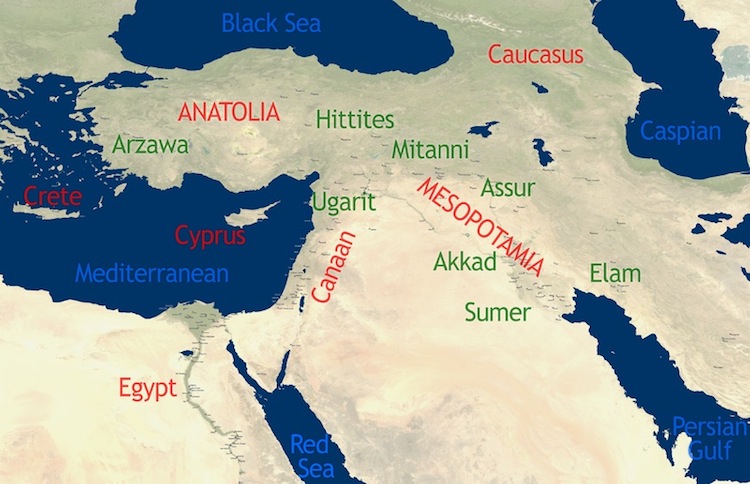
1.1 Mesopotamian civilizations
Some of the major Mesopotamian civilizations include the Sumerian, Assyrian, Akkadian, and Babylonian civilizations. Evidence shows extensive use of technology, literature, legal codes, philosophy, religion, and architecture in these societies.
Mesopotamia is a region of southwest Asia in the Tigris and Euphrates river system that benefited from the area’s climate and geography to host the beginnings of human civilization. Its history is marked by many important inventions that changed the world, including the concept of time, maths, the wheel, sailboats, maps and writing. Mesopotamia is also defined by a changing succession of ruling bodies from different areas and cities that seized control over a period of thousands of years.
Mesopotamia is located in the region now known as the Middle East, which includes parts of southwest Asia and lands around the eastern Mediterranean Sea. It is part of the Fertile Crescent, an area also known as “Cradle of Civilization” for the number of innovations that arose from the early societies in this region, which are among some of the earliest known human civilizations on earth.
Where is Mesopotamia?
The word “mesopotamia” is formed from the ancient words “meso,” meaning between Tigris and Euphrates or in the middle of, and “potamos,” meaning river. Situated in the fertile valleys between the Tigris and Euphrates rivers, the region is now home to modern-day Iraq, Kuwait, Turkey and Syria.
https://www.youtube.com/watch?v=xVf5kZA0HtQ
Interesting Facts About Mesopotamia
The Babylonian law created by King Hammurabi, the Code of Hammurabi, may be the oldest written law in the world.
The Sumerians are often credited with inventing the wheel.
At the centre of each major city was a temple to the city's god called a ziggurat.
Irrigation Systems. The ancient people of Mesopotamia created their civilization with many new ideas and inventions. ...
Farming Inventions. As far back as 2500 B.C.E. metalworkers started. ...
Weights and Measures. Sumerians developed standard units of measurements for weight
5000 BC. Earliest evidence of human culture in Mesopotamia.
2900 BC. Pre-dynastic Sumerians.
2750 BC. First Sumerian dynasty of Ur.
612 BC. Fall of Nineveh.
539 BC. Fall of Babylon and the beginning of Persian dominance in Mesopotamia.
546 BC. Conquest of Lydia and the Greek cities of Asia Minor by Cyrus.
